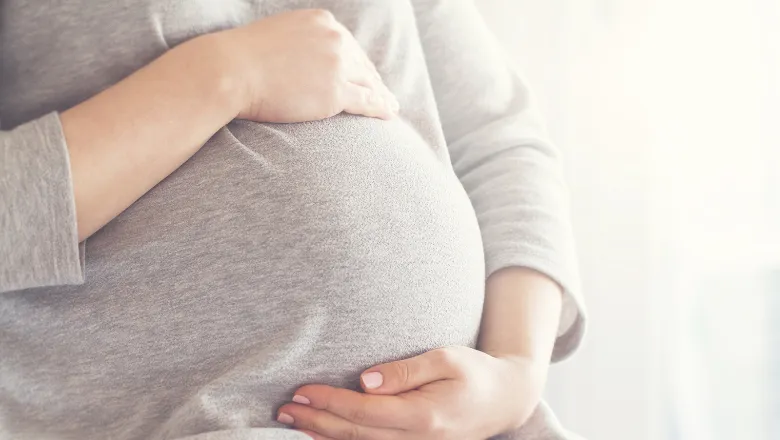Rates of co-IVF have increased dramatically in the UK. It’s important that couples going into the process are aware of potential complications that might happen because the baby is genetically unrelated to the pregnant woman. "
Professor Susan Bewley, Co-lead of the study and Emeritus Professor of Obstetrics and Women's Health at King’s College London
05 September 2025
Co-IVF pregnancies may come with higher rates of serious complications
Pregnancies of same-sex couples which involve their partner’s egg may come with higher rates of complications for the birth mother and baby.

Pregnancies of same-sex female couples which involve their partner’s egg may come with higher rates of complications for the birth mother and baby.
According to a new review, the risk of developing conditions such as pre-eclampsia and gestational diabetes could be significantly increased in these pregnancies. There could also be a higher risk of babies being born with a lower birth weight.
The review, the first of its kind, by researchers at King’s College London, Anglia Ruskin University and the University of Leeds, compared the outcomes of IVF in same-sex female couples using their partner’s egg versus their own egg.
The researchers looked at over 9000 patients from five existing studies to compare co-IVF (“reciprocal” partners’ egg IVF) with traditional own egg IVF in same-sex female couples.
Although current evidence might suggest that these types of pregnancy could point to a better live birth rate, they found that there might be a higher risk of complications.
This type of co-IVF pregnancy is an elective offer from many clinics. The egg of one woman is collected and an embryo is made with donor sperm which is them implanted in the other woman.
The findings, published in the Journal of Homosexuality, could have implications for fertility care and what would-be lesbian parents and women using donor eggs are told in advance of undergoing fertility treatment.
In the UK, the prevalence of IVF in same-sex female couples increased nearly seven-fold in the decade 2008–18, from 320 to 2,151 IVF cycles.
“All women deserve full, unbiased information about the extra risks to mother and baby associated with carrying a donor-egg pregnancy – so they can make their own decisions about whether the risk outweighs the benefit.”
Professor Catherine Meads, co-lead of the study and Professor of Health at Anglia Ruskin University, said: “These worrying preliminary findings need to be investigated in a much larger scale study to determine the precise additional risks when women opt to undertake a pregnancy with a donated egg.”
The research was carried out by Elizabeth Choong, an undergraduate student in Medicine at the University of Leeds. She said: "Numbers of same-sex female couples choosing co-IVF are increasing, so it is vitally important that the risks they face in undergoing this procedure are clearly explained from the outset. We hope our research can help keep same-sex couples fully informed before they make any family planning decisions.”
